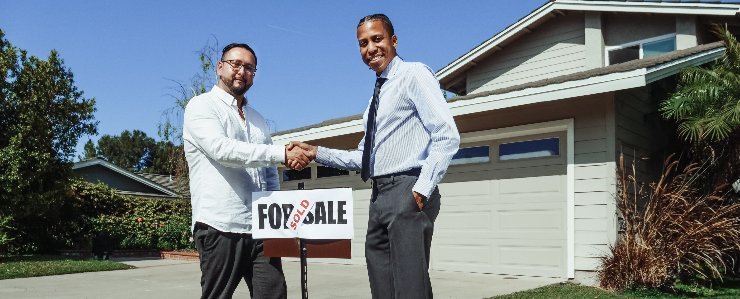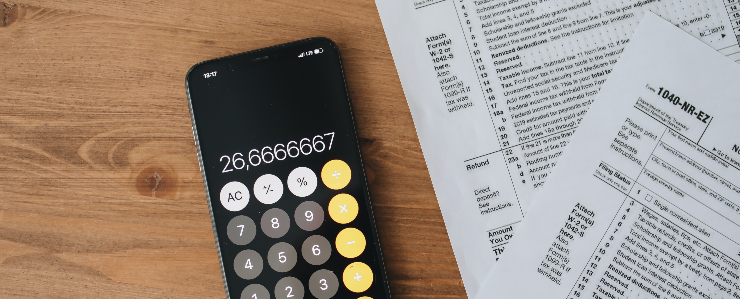
Are you planning to sell your house? Did you know that the sale of a home involves more than just receiving payment from the buyer for the property? All sellers still have to complete one significant duty, which is tax filing.
If this is your first time selling a home, everything is probably as clear as mud. Which form do I submit? How can I lower my tax obligation? Do I qualify for a tax break? How does the fact that my buyer is paying me hard money affect my tax return?
There must be a thousand more questions to which you are trying to find answers. Half knowledge is dangerous, especially when dealing with taxes, so make sure you read till the end. In this beginner-friendly guide, you will find answers to all your queries related to taxes on selling a house.
What is IRS?
Internal Revenue Service, or IRS, is a federal government body of the United States that deals with everything related to revenues and taxes. Helping the taxpayers, ensuring zero errors and false tax filings, establishing rules and regulations, and providing tax benefits to eligible taxpayers are some things that the IRS looks over. If there is anything related to tax filing that you need to know, you can check out their ,official website.
Capital Gains Tax
Capital gains tax is levied on any capital gains, whether from stocks, real estate, or any other sale of a capital asset.
For all the beginners out there, let us talk a little bit about what capital gain is and what capital assets are. There is one more term you should know the meaning of – the cost basis.
Capital Assets
Whether for personal use or investment, anything you own is a capital asset—for example, real estate, paintings, stocks, and other investments.
Cost Basis
Cost basis refers to the price of the capital asset when it was bought. If you make improvements to your house which increase the value of the house, then you have to add that cost is also included in the cost basis along with the purchase price. Some fees and closing costs are also included in the cost basis. Say, for example, you bought a house for $340,000, including the closing costs, and conducted home improvements of $12,000. Your cost basis would be $352,000. Knowing the cost basis is essential because when filing the capital gain, you need to know exactly how much profit you made.
Capital gain
Capital gain is the difference between the amount you sold your house and the cost basis.
Capital Gain Vs. Ordinary Income
Capital gain is different from ordinary income. Ordinary income refers to your regular income. It can be your salary, rent, etc. The capital gain can be considered your ordinary income if you are an investor who regularly sells properties.
“Realized” Vs. “ Unrealized”
Yet another thing that needs to be understood is that the capital gains tax is to be filed only when it is realized, which means only when you have made some profit on selling your asset. If you keep that asset with you for years, capital gains would not be applicable. But if you sell it in 2022, capital gains tax would be applicable for this tax year. Even if you buy stocks for investment, until you sell them, they are considered unrealized capital gains.
Short-Term Capital Gains Vs. Long-Term Capital Gains
Short-term capital gain is treated as ordinary income. When an asset you had owned for one year or less than a year is sold for a price higher than the cost basis, the capital gain is referred to as a short-term capital gain. The capital gains tax rates for short-term gains vary between 10% to 37%.
Long-term capital gains are referred to as capital gains made after you’ve owned an asset for more than a year. Tax rates for long-term capital gain are 0%, 15%, and 20%.
Capital gains tax on the sale of a house.

Let’s discuss more regarding capital gains with respect to a real estate sale.
When you sell your house, which gets sold for a price higher than the price you bought it for, you will be required to pay capital gains taxes. However, there are instances where you don’t have to pay any tax amount. How? We’ll know that soon.
The two years rule
There are a lot of eligibility requirements for tax exceptions, which we will discuss in the next segment. But one of the most important criteria is the two years rule.
Out of the five years before the sale date, the house you sold should have been your primary residence for 24 months. It doesn’t have to be 24 months straight. You can live for about a year, move somewhere else, and then come back.
If you prove that you lived in this house for 24 months, you can get an exclusion. Based on your profit or capital gain and the way you file the tax (single or joint) will determine how much exclusion you can get.
A single person filing the tax report can get an exception of the first $250,000 of your capital gain. A married couple filing jointly receives an exception of $500,000.
Are all-cash sales taxed?
The same rules apply to taxes on all-cash house transactions. You won’t actually save money on taxes if you sell your house for cash. However, you will be immune from capital gains taxes if you were able to sell the house for a lesser price than you paid for it ( since you are at a loss here).
You don’t have to go for a poor deal to avoid capital gains tax. If you don’t want to pay the tax, think about whether you qualify for an exception or not. If your profit value is less than $250,000 or $500,000 for married couples, you are exempt from paying tax (if you satisfy all eligibility requirements). In this situation, selling the house for cash is unnecessary because you are exempted from paying taxes.
How to report the sale?
To report the sale of your house, you will be required to submit form 1099-S. Whether your tax amount turns out to be $10,000 or $0, you must fill out the form in time. As I mentioned, your capital gain can be completely exempted, but this doesn’t imply that you don’t have to fill out the forms.
Additionally, you have to fill out form 1040. The primary purpose of the 1040 form is to examine all of a taxpayer’s income and estimate any potential tax liabilities or refunds. The form accomplishes this by providing data from each tax form that a person must complete, which can be helpful for those with many income sources in particular.
The 1099 form, in contrast, is mainly utilized to declare a specific source and amount of revenue. Form 1099 appears on form 1040, but both need to be submitted separately.
How to calculate the capital gain?

To report your capital gains, you must first calculate your capital gain. Here’s how you can do it.
You have to subtract the purchase price of your house, the cost of improvements, and selling expenses from the selling price of your house, and that will give your capital gain or loss.
Let’s understand this with an example. Let’s say you bought your house for $10,000 and made improvements to it for $3000. So your cost basis is $13,000. The selling price of your house turned out to be $20,000. The selling expenses were $1000. Now subtract $13,000 and $1000 from $20,000. There you have it; $6000 is your capital gain.
It’s a simple formula.
Capital gain/loss = Selling price – (cost basis + selling expenses)
Now, if the cost basis of your house is higher than the listing price, you will have a capital loss.
Are you eligible for capital gains exclusion on a home sale?
Remember we discussed an exclusion of $250,000 or $500,000 if filed jointly? There are certain requirements for you to be eligible to get this exclusion. If you can tick all these requirements, you can be sure of receiving an exclusion.
Owning the property for two years
You satisfy this criterion if you have owned the property for at least two years over the five years before the closing date. If you are married and are filing jointly, then only one spouse has to meet this requirement.
The property should be your primary residence for two years
Remember the 2-year rule we talked about earlier? It is one condition you must satisfy to enjoy tax exclusion. You must use the sold property as your primary residence for at least two out of the five years.
The difference between the earlier rule and this one is that one talks about owning the property for two years while the other talks about living in that property for two years.
If you go out for quick vacations during this period, those days are also included in the 24 months. Moreover, unlike the previous requirement, both spouses must satisfy this condition if they file jointly. Therefore a recently married couple won’t be eligible for an exception of $500,000.
Once in two years
You can get this exclusion only once every two years. So if you have sold another property in the last two years and received the exclusion for that, you won’t qualify for an exclusion this year.
Disqualifications
We also need to know why you get automatically disqualified for an exclusion.
If you use a like-kind exchange, you get automatically disqualified. What is a like-kind exchange? When you sell one property and buy another that is equivalent while escaping capital gains tax, it is called a like-kind exchange. You may also lose your eligibility if you must pay expatriate tax.
Exceptions
There are certain exceptions to the exclusion eligibility requirements.
- If you are a widowed taxpayer unable to qualify for the 2-year rule.
- Divorce or separation
- You bought land but never built a house to live in
- Your home was demolished
- When you owned the house, you were in the service.
- Used your property as a rental property or vacation home
Learn more about each of these exceptions ,here.
Partial exclusion
Here is some good news for those worrying if they cannot meet all the eligibility requirements and are also not qualified as an exception. You can still get an exclusion but not the complete amount, only a part of it.
If a move for a job, a health problem, or an unexpected occurrence was the key cause behind your house sale, you might be eligible for a partial exclusion.
Bottom line
Selling a house is a huge responsibility. But paying the capital gains is a greater responsibility. Make sure you submit the forms on time and with accurate information and proof of sale. This guide was designed keeping in mind the beginners. I hope you were able to grasp everything about taxes on selling a house. Any other help or information you would like to read about taxes would be available on IRS’s official website.








